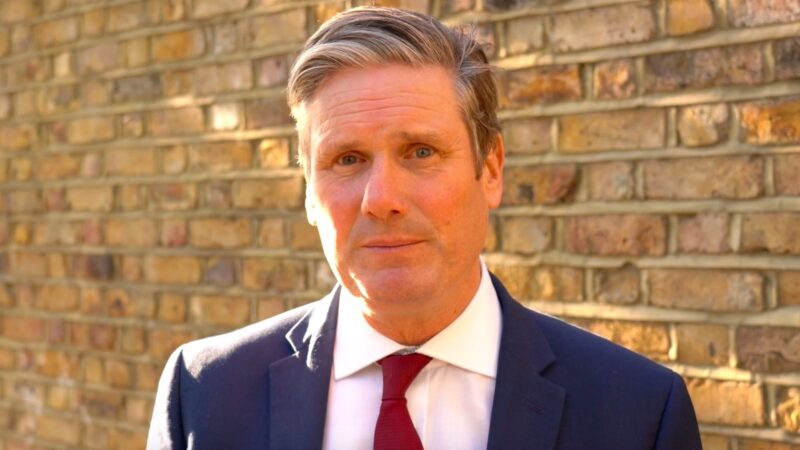
Keir Starmer has declared that he expects “all children back at school next month” – “no ifs, no buts, no equivocation” – and that the Prime Minister has a “moral responsibility to make sure that it happens”.
In an article for The Mail on Sunday today, the Labour leader wrote: “The government must learn from the mistakes over the past months and ensure that the next academic year is not disrupted to the detriment of children and families.”
“My offer to help the government reopen schools still stands but responsibility for making it happen lies squarely at the door of No 10. Despite our differences, I want the government to succeed in defeating the virus.
“I want lives saved, I want the virus contained, I want the economy restarted and I want children in school. But education has become characteristic of this government’s handling of the pandemic in recent months.”
Starmer said the Prime Minister’s “priorities were wrong” and slammed Boris Johnson for setting up a task force for the reopening of bowling alleys while rejecting calls from Labour to establish a cross-party working group on opening schools.
He also described the “anger and frustration” of families over the past week surrounding the “exams fiasco”, and called for an urgent review to prevent the same situation arising with GCSE results on August 20th.
A-Level pupils across the country received estimated grades on Thursday following the cancellation of the usual end-of-year exams when schools closed due to the coronavirus pandemic. Figures show that 39.1% had their result moderated down.
Starmer wrote: “So, let me send a very clear message to the Prime Minister: I don’t just want all children back at school next month, I expect them back at school. No ifs, no buts, no equivocation.
“Let me be equally clear: it is the Prime Minister’s responsibility to guarantee children get the education they need and the benefit of being back with their teachers and classmates.”
The grades released on Thursday followed results day in Scotland last week, where 93.1% of students had their grades revised down. The Scottish government later abandoned its moderating system and returned to initial teacher predictions.
Starmer wrote in the Mail that while the pandemic had made it challenging to assess qualifications, “many of the challenges were entirely foreseeable”, and the government has had time to create a working system.
He said it was “blatantly obvious when the Scottish government was forced to U-turn early last week that the UK government was going to need to take drastic action”, and accused the Tories of having instead “turned a blind eye”.
The Labour leader added: “Young people – particularly those from disadvantaged backgrounds – have been robbed by a system that judged them on their postcode, not their ability or effort.”
According to analysis of the official figures released by Ofqual, those students with a grade C or above were downgraded from teacher estimations by over 10% among children from the most disadvantaged background.
Gavin Williamson was slammed by teachers last week for a “panicked and chaotic” reassurance issued to students on the eve of results day last week when he announced a “triple-lock” for results.
The Education Secretary promised that pupils would have three options: accept their predicted grades, resit their exam in the autumn, or use a mock exam result for the basis of an appeal.
But after Ofqual published guidance for the appeals process on Saturday, the body announced later in the day that it would be reviewing its own criteria for appeals – suggesting that Williamson’s last-minute mock results plan could be scrapped.
Ofqual said: “Earlier today we published information about mock exam results in appeals. This policy is being reviewed by the Ofqual board and further information will be published in due course.”
Commenting on the exams, Labour’s Kate Green said: “The Tories’ results fiasco is turning from tragedy to farce, and the chaos and incompetence is completely unacceptable when so many students and families have been devastated by it.”
The Shadow Education Secretary added: “A credible appeals system should have been the government’s first priority, but three days later there is absolutely no clarity on how young people can challenge their unfair grades.”
Labour has called on the government to waive fees for schools and colleges appealing grades. Under the current system, institutions are required to pay up-front for appeals and can only claim back the money if successful.
108,000 result reviews were carried out last year. Analysis shows that private schools are both more likely to attempt to challenge a grade and more likely to be successful in their appeals.
The independent regulatory body has recognised this, saying: “Independent schools tended to submit a greater percentage of their qualification entries, at both GCSE and A-Level (11.9%).” This compares to 5.4% to 8.6% for other school types.
The figures released by Ofqual alongside Thursday’s results show that 35.6% of the predicted awards given out were adjusted down by one grade, while 3.3% were brought down by two grades and 0.2% came down by three grades.
New polling from Opinium indicates that 42% of the public disapprove of the government’s handling of predicted A-Level and GCSE exams results in the coronavirus pandemic.
43% of respondents thought students should be allowed to appeal to use their teacher’s estimate instead, while another 43% believed that they should be allowed to simply sit the exam as intended.
It also showed respondents wanting to see the government prioritise schools over other venues when considering what to open – when asked, 60% said that they would prefer pubs and restaurants close in September so that schools can open.




More from LabourList
‘Labour is being badly misled on housing’
Reeves bets on patience over populism
‘Energy efficiency changes must work for older private renters’